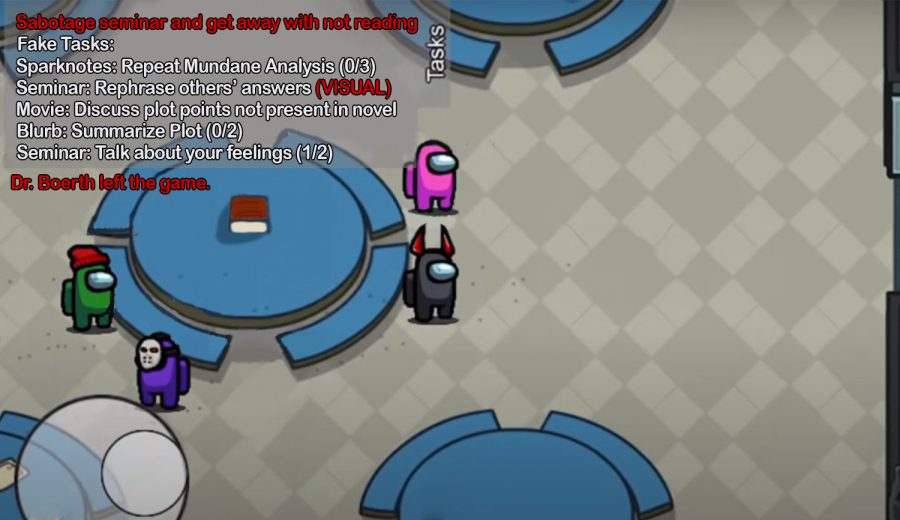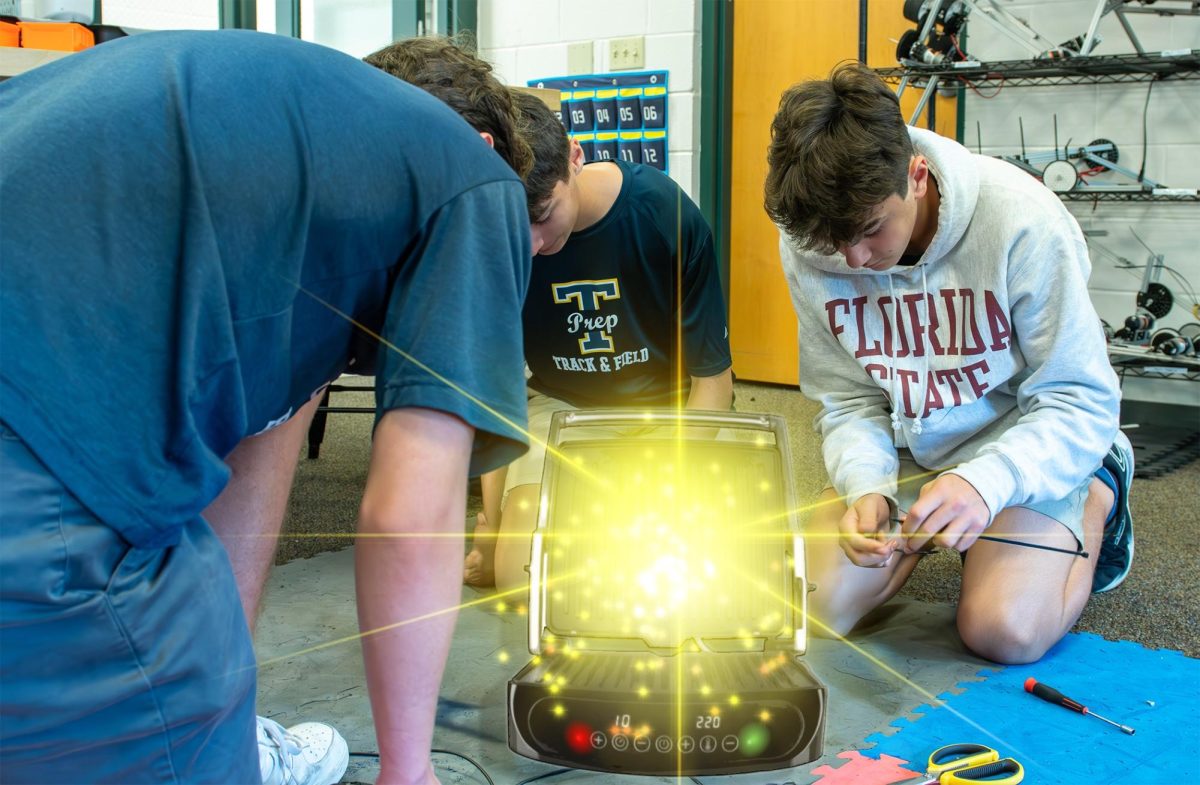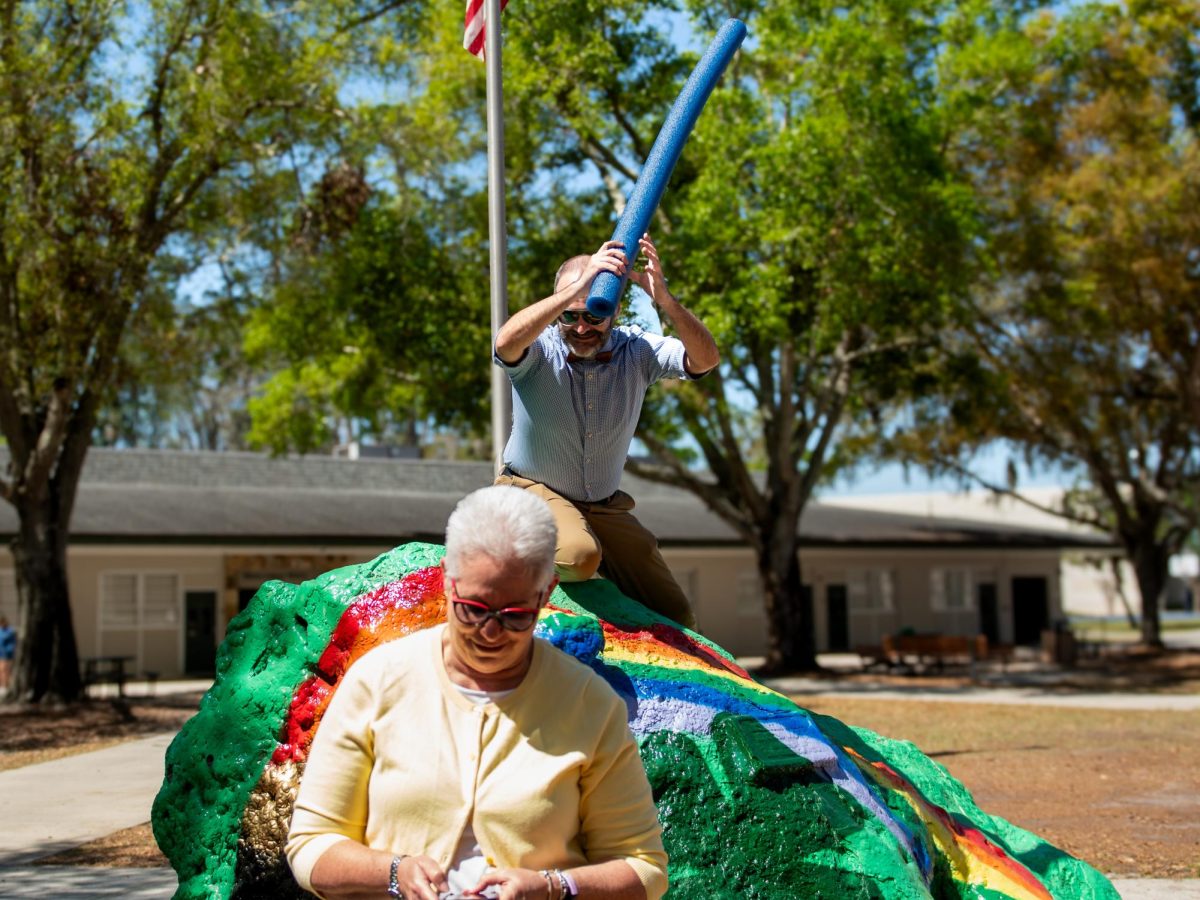The Among Us phenomenon swept the globe last fall, giving many quaratiners a unique way to virtually interact with other people. Social deduction games have long been a mainstay of slumber parties and summer camps, but now recent evidence shows that games of Among Us have been occurring in English classrooms across the nation for years.
Junior Sarah Lin is a frequent imposter in her AP Lang class and is proud to announce that no one has ever noticed when she didn’t do the reading.
“It’s not that I wake up everyday and choose to be the imposter,” Lin said. “The imposter life chooses me.”
In order to pull off an imposter win, Lin says that convincing a couple of your close friends of your innocence (or marinating them) prior to class is crucial. Imposters should also never forget to read SparkNotes and various summaries in order to give them enough material to paraphrase.
“Some people think that being the English imposter means you don’t have to read anything, but that’s a surefire way to lose,” Lin said. “A true imposter does background reading on SparkNotes and performs visual tasks such as looking down at your book and pretending to search for a quote while others are talking. That way, you look like you know what’s happening.”
AP English Language teacher Robert Boerth is impressed by his students’ ingenuity during seminars.
“Often our imposter ends up working harder than some who did the reading,” Boerth said. “The seminars can also get quite heated since those who read sense the weaknesses of those who used SparkNotes. I think it encourages the crewmates to engage more critically with the text so that they can point out the imposters’ lies.”
Frequent crewmates agree that the imposter system is rigged. Some people never get imposter while others have spent years avoiding the required reading.
“I actually enjoy reading but sometimes I really crave the endorphin boost that comes from deceiving everyone in my class,” junior John Gotschall said. “I think that the imposters should take turns, because sharing is caring.”
As school gets more and more stressful, tensions between crewmates and imposters grow. One of the cardinal rules of Among Us-Lit is that you can’t use past games as evidence. Yet, most students are finding this really hard to follow.
“Sarah is the imposter like every single class,” Gotschall said. “And I keep telling everybody that the statistical probabilities point to her. But, no one believes me because they said that it’s only circumstantial evidence; it’s so annoying. One of these days I’m going to plant — or sorry — find some evidence that they can’t ignore.”
If the crewmates lose an Among Us-Lit game, they have to reread the chapters. But the penalty for an imposter who gets voted out is much more severe: donning the Bosco mascot costume during the hottest part of the day. It’s no surprise that students are starting to get more aggressive in their English classes.
“I used to wonder why Bosco would randomly show up on campus even when we didn’t have pep rallies,” Lin said. “Now that I know the truth, I can’t help but wonder, is Bosco the real imposter?”
Most English teachers agree that the game of Among Us-Lit has increased engagement in class and believe that their grading system hasn’t been affected by it.
“There is a strong correlation between the best imposters and the most talented students,” Boerth said. “So, I think that students get the grades they deserve either way. The punishments just make everything more interesting.”






![[Satire] Six Steps to Sainthood](https://thetrinityvoice.com/wp-content/uploads/2025/04/DSC_4124-2-NR-1200x907.jpg)


